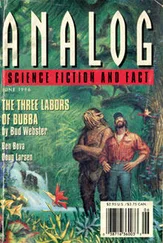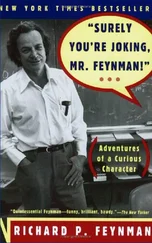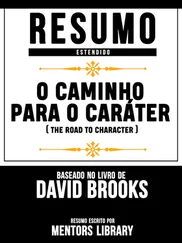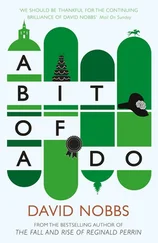Losel was seventeen when he left home. His mother was worried he’d end up dead, or worse, Chinese. He didn’t want to leave at first, he liked it up there. But he got into too much trouble. Squabbling over an unpaid debt he blew up a Muslim bookie’s car. He made a petrol bomb of the gas tank and blew that old BMW into the sky. His mother sent him away the next day.
The monk interrupts him, begins talking, talks fast and stern, as if he’s lecturing. He goes on like this for a while and Losel gives him short replies, starts to laugh, until the monk bangs his fist on the table, gets up and walks away. Losel watches him go. He says, He worries about my soul. He’s going upstairs to watch people killing each other on STAR Movies. He likes the action films best of all.

We drive down from Majnu ka Tila to the Tibetan Monastery Market. Through the flyover arch we walk to the stalls of clothes surrounded by college students. Left before the main market, past the bell of the monastery — there’s a small alleyway, nothing more than a gutter between two buildings, on either side of which there are more shops selling bags and shoes and all manner of counterfeit clothes. At the end of that alley, dodging the sewage running through the middle, we come to a door with panels painted black so you can’t see inside. Into that drab building, through another door on the right, and you’re in Tibet.
The room is a great dark canteen full of noise and incense, twelve tables of monks and laymen all together, photos of the Dalai Lama on the walls alongside a giant photograph of Lhasa from the air. High in one corner, a TV is screeching, half the room absorbed in its boom bang, the other half in conversation — loud, intense, spirited — or eating. Monks gobble noodles. We sit at the only empty table and Losel orders Coca-Cola, thentuk, phing sha, fried beef momos.
They begin to talk about the charas, how good it is, where he got it from, what the price should be. He says he’ll sell for three hundred, you can sell it on for six. Who’s buying?
There are some Israelis in Paharganj, they’re waiting for it right now, they called last night.
Coming from?
Old Manali — some are heading to Goa, some of them are going home. They want to take it back with them too.
At the end of the meal we leave the monks and the smoke and go back down the alleyway, back into the market, inside one of the countless shops, up some step-ladders in the back to a storeroom above the ceiling, full of shoeboxes. A pretty young Tibetan girl is sleeping, Losel shakes her awake. My wife, he says. She stretches and yawns. Without a word she pulls out one of the shoeboxes, pushes it towards us and goes back to sleep. Fifty tolas inside, creamy little pellets wrapped in cling film.
Losel passes him one, he peels the film off, scratches it with his nail, sniffs, nods, throws it back again. He takes the envelope from his pocket, counts out fifteen thousand and hands it over.

The Israelis are waiting for us on the roof terrace of Anoop Hotel. They don’t stay here, it’s just the meeting place. The Israelis. Most of them are just out of the army, muscled, tattooed, letting their hair grow long — the women as tough and free as the men.
Others are scared of them, and they keep to themselves, they don’t mix well, they move in packs, don’t suffer fools. But they love him. They think he’s a crazy one, this crazy Indian coming into their world, talking with them as one of their own, talking with a brain, charming them. Not like the others, not trying to suck up and serve. He wears a Star of David when he meets them. They love him for this too. They laugh. They say maybe he’s one of them, he could be one of the lost tribe.
And they hate Delhi. Another reason to love him. He makes the city bearable for them. They call him up on the phone and he makes it better, he knows where to get hold of the best charas, the best dope, the Valium and ketamine from the corrupt pharmacies.
The room we go to is like Franklin’s. Mosquito bloodstains on the walls, sewer stench lingering, incense burning. In the process of packing, unpacking or repacking, someone’s belongings got scattered about the place. There are drums and chillums and dirty clothes, and a machete on the bed.
Ten of them are standing there. The bed is cleared, fifty tolas are spread out on the mattress. One is opened up, passed around, inspected by everyone. Guarded smiles and shrugs and nods, a ripple of cautious approval, and someone begins to crumble charas into a mixing bowl.
The negotiations begin. He starts at eight hundred per tola and they baulk at this, laugh at him. They say, Come on, man, be real. He laughs back, gives nothing away, declares the provenance, says it’s from Malana itself, reminds them that he’s the trustworthy one and they came to him, he’s not a dirty Kashmiri, he’s not like the others on the street. He says they won’t find anything this good on their own, not here, not for this much, not now. Go out in the street and ask for it, see what they give you. So they offer five. He looks offended, goes to collect the charas in the shoebox like a kid gathering his toys. They laugh at him and push him away and say, OK, OK. Make it six, and he looks at them with raised eyebrows and shakes his head and says, Seven five. Six, they repeat. He makes as if to spit on the floor, pauses, grins, says, OK, six five.
Six five. There’s a discussion about it. Good enough.
Thirty-two thousand, rounded down.

Smoke in the room now, everyone getting blasted, chillums being smoked empty, cleaned with cloth that’s torn into strips, repacked, bom Shiva, lit. One of the men picks up the machete from the bed. He says it belonged to another guy, another Israeli, not in their group though, a guy who smoked too much, didn’t have the right head, had a bad temper, cracked. They were at the beach one morning after a party, it was in Goa at the start of April, the season was ending, the music was still playing in the jungle not far away, and this guy, he was sitting at the edge of this group in the sand, spaced out, coming down. And then this cow … This cow is behind him, coming towards him, trying to get into his bag, you know, poking its head around, flicking out its tongue, the flies are around it. He has some food in his bag. The cow wants the food. This guy is pushing it away, cursing it, pushing it with his hands, but every time he pushes it, it just keeps coming back again. And this guy is getting angrier and angrier. His, how do you say? His patience, you know, it’s not so good.
People in the room start to laugh.
So what does he do? His temper goes, OK. He gets up, he’s had enough, he empties his bag on to the sand, dumps everything out, everything in his bag, and looks at the cow and he shouts at it, in Hebrew, he’s saying, Go on then, fucker, eat it. Eat everything. And the cow, it just keeps going on, doesn’t know what he’s saying, it keeps coming forward and starts eating. There is some banana, a piece of bread. And everyone around is laughing. Everyone thinks it’s fucking funny, you know. But what else is in the bag? This fucking machete. So what does he do? He picks up the machete. It’s also on the ground. Boom. He puts it into the fucking cow’s neck. Right into its fucking neck. This guy’s crazy, you know. He puts the machete right into the neck. Crack. You see the bone and the meat and the blood. Blood everywhere. Everyone who was laughing, now they’re jumping up from the sand. What the fuck? Are you crazy, man? But he keeps going. He’s taking the head off, there’s blood everywhere. There are locals on the beach, fishermen, chai sellers. They’re all watching this. They’re not happy. Oh no. And before you know what’s happening, a crowd is forming, they’re watching this like they don’t believe their fucking eyes. This cow is fucking dead and everyone else is backing away from him and he’s there with the cow. Then he kind of, you know, wakes up, he looks around. There’s this dead cow on the ground and he’s standing there and these locals are all staring at him. This guy is thinking, Fuck.
Читать дальше













